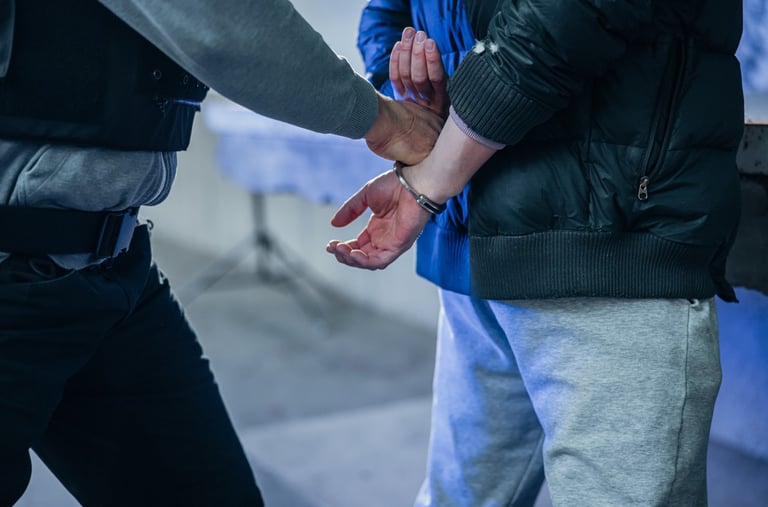Frank DuNN: Conversations at the junction of faith and politics
Were You There?
The crucifixion of Jesus is not a faroff past event. It is going on right before our eyes, in our midst.
Frank Dunn
4/17/20253 min read


Were You There?
Every year for the last 54 I have come through Holy Week wondering how to make sense of it all. This year is different. I’m in Holy Week. And, as one fellow priest once said, “Holy Week is hell.”
I don’t know what the priest meant. Perhaps he was only thinking of the stress priests experience trying to conduct a week full of services that might or might not be well attended, that might or might not stir people’s devotion and deepen their faith. Or perhaps on some level he was thinking theologically. Because Holy Week was hell for Jesus, not just because before it was over with he “descended into hell,” as the creeds put it. Holy Week was hell because of the sheer agony and suffering that the State inflicted on one human being: him.
If you’re like me, you see in the image of the suffering Messiah a human being going the entire distance possible between God and not-God, between the heart of life and the nothingness of death. Good Friday, like all of Holy Week, would not be anything remarkable were Jesus’ death to have been a quiet, peaceful death without agony, suffering, debasement, anguish, and unspeakable atrocities. Nor would it be anything to remember, let alone commemorate, if on any level his suffering was deserved.
Undeserved torture. That’s what I’m now seeing. And what you’re seeing, if your eyes and mind are open. And make no mistake. Though we might not be watching the event, torture is happening. Not only is it happening, it is increasing.
Jenifer Rubin[1] wrote today about Kilmar Abrego Garcia who has been kidnapped by federal authorities through an “administrative error,” and sent to a prison in El Salvador. The government contends, despite its claim that the deportation was erroneous, that it is powerless to return Kilmar; and its client, President Bukele of El Salvador, likewise claims he is powerless to release him. Meanwhile, a man who was legally in the United States with no record of criminal activity of any kind, no convictions, whom a federal immigration judge had determined should not be remitted to El Salvador because of imminent danger he would be in is held captive in a notorious prison as a political prisoner in that very country. And due process of law, which is the constitutional right of anyone living within the United States, whether a citizen thereof or not, has been abrogated.
Nor is this the only case in the news. According to Rep. Rebecca Balint (D-VT), “Mohsen Mahdawl, a legal resident of Vermont, walked into an immigration office in Colchester for what was supposed to be the final step in his citizenship process. Instead, he was arrested and removed in handcuffs by plainclothes, armed individuals with their faces covered.” [2]
These men are only two of a number who have been similarly abducted. The pattern is now visible.
For ages, a strand of Christian piety has seen the crucifixion of Jesus as having been occasioned by the personal sins of his followers (and the sins perhaps of those who don’t identify with Jesus at all). That sentiment is expressed in the words of some hymns such as "Who was the guilty? Who brought this upon thee? Alas my treason, Jesus, hath undone thee. I it was denied thee, I crucified thee."
Whatever else might be said about that personalization of the crucifixion, it is a way of connecting the event with the present life of the worshiper. It’s not so different to see people like Kilmar Abrego Garcia and Mohsen Mahdawl as current victims of the same kind of inhumane treatment meted out by the state. Neither of these men has been charged with crimes. But that’s how authoritarian regimes operate. The Roman authorities who acceded to the demands of the alliance of religious leadership and economic interests in putting Jesus to death were an authoritarian example. Now the United States, like Hungary, Turkey, Russia and other countries, is an example.
“Were you there when they crucified my Lord?“ Words of a Negro Spiritual that will be sung in many places on Good Friday, that question haunts many a worshiper imagining that the import of the question is to invite imagining what it was like to watch Jesus suffer and die. But the real imaginative act is to see how the passion— the suffering—of Christ is co-terminus with the suffering of those who are persecuted, belittled, denigrated, marginalized, brutalized, and shamed.
Were you there? I am there, and there is here. We are living through Holy Week, know it or not.
And living through it is living through hell.
If things don’t change, we’ll all be tasting hell soon enough.
[1] Jenifer Rubin, “Free Kilmar,” The Contrarian, online on Substack (https://substack.com), April 16, 2025.
[2] Rebecca Balint in a Resistbot Letter, April 16, 2025.
